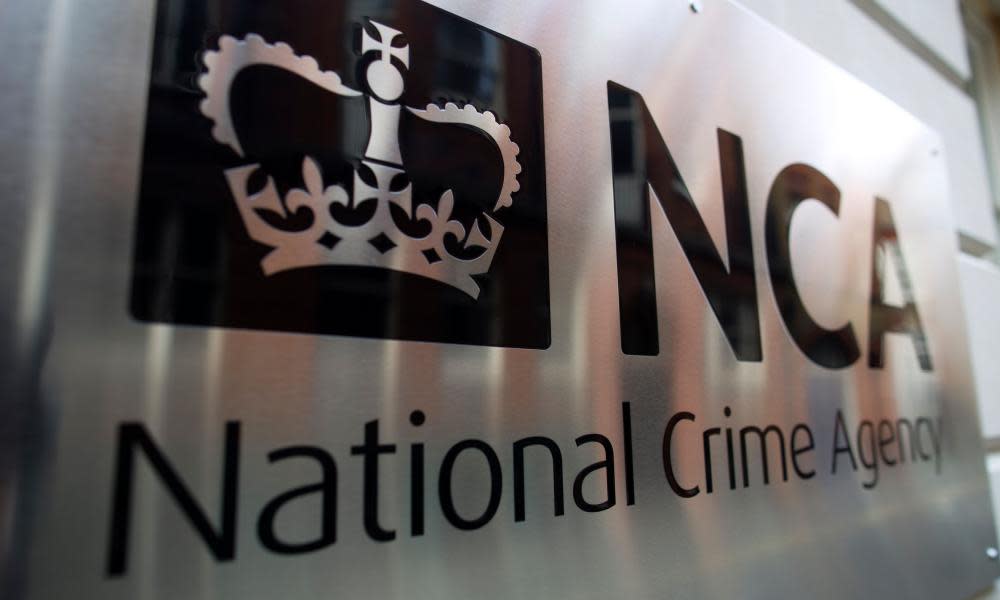Police arrest more than 700 in UK-wide county lines drug crackdown

More than 700 people have been arrested and more than £400,000-worth of drugs confiscated in a week of UK-wide crackdowns on county lines gangs, police have said.
In coordinated law enforcement activity between 7 and 13 October, 49 “deal lines” across Britain were disrupted, 389 vulnerable adults and 292 children were safeguarded and 169 weapons were seized, including 12 guns, knives, swords and machetes.
A total of £253,200-worth of cocaine, £100,170-worth of crack cocaine and £72,670-worth of heroin were seized.
Police said they were “dismantling these criminal networks piece by piece”.
The operation was led by the National County Lines Coordination Centre (NCLCC), a Home-Office-funded unit aiming to target the organised gangs that take their name from mobile phone lines criminals set up to receive orders from drug users.
There are about 2,000 lines in operation.
The county lines gangs use safe houses in smaller towns to support their operations in bigger cities, and often exploit young and vulnerable people by either taking over their homes, also called “cuckooing”, or by employing them as drug couriers.
During the operation, 41 people were flagged up to the national referral mechanism, which assesses potential victims of human trafficking and modern slavery.
What does the term ‘county lines’ mean?
The name ‘county lines’ refers to the phone numbers, or lines, that criminal gangs which traffic drugs from urban to rural areas use to organise the sale of their wares. Gangs in cities such as London, Birmingham and Liverpool use children to deal mostly heroin and crack cocaine over a network of dedicated mobile phones to smaller towns and rural areas.
Who are the victims and how are they recruited?
The majority of victims groomed into working for gangs are 15- to 17-year-old boys but children as young as 11 have been safeguarded and girls have been targeted.
Many victims are recruited over social media, with offenders luring them with images of cash, designer clothing and luxury cars, but vulnerable girls and women are being targeted by men who create the impression of a romantic relationship before subjecting them to sexual exploitation.
How big is the problem?
In 2015, about seven forces reported county lines behaviour. Now, 44 forces, including British Transport Police, have recorded county lines behaviour on their turf.
No one really knows how many young people across the country are being forced to take part. Children without criminal records – known as ‘clean skins’ – are preferred because they are less likely to be known to detectives. The Children’s Society says 4,000 teenagers in London alone are exploited through county lines, while the children’s commissioner estimated at least 46,000 children in England were caught up in gangs.
How many children have been affected
The number of individual phone numbers identified by law enforcement officials as being used on established county lines networks is about 2,000 – nearly three times the 720 previously established.
Police estimate the phone numbers are linked to about 1,000 branded networks, with a single line capable of making £800,000 profits in a year.
The National Crime Agency said 652 men and 91 women had been arrested, and 655 cuckooed addresses had been visited.
Duncan Ball, the National Police Chiefs’ Council lead for county lines, said: “We will not treat the criminals who run these lines just as drug dealers. We will work tirelessly to prosecute them for these offences but also, where we have the evidence, we will seek to prosecute them for child trafficking under modern slavery laws to reflect the devastating nature of their exploitation of young and vulnerable people.”
Nikki Holland, the National Crime Agency county lines lead and director of investigations, said: “The only way we can effectively tackle this national problem is by adopting a whole-system approach, with partners in public health, Department for Education, social care and the charity sector working to prevent that exploitation happening in the first place.”
Lucy Dacey, the national disrupting exploitation programme manager at the Children’s Society, urged the government to introduce an appropriately funded, national strategy to help end the prevailing “postcode lottery”.
“This week has highlighted the importance of supporting children as vulnerable victims of trafficking rather than criminals, but there is still much to do to ensure they consistently get the right response from all local agencies and are helped, not punished,” Dacey said.

 Yahoo News
Yahoo News 
